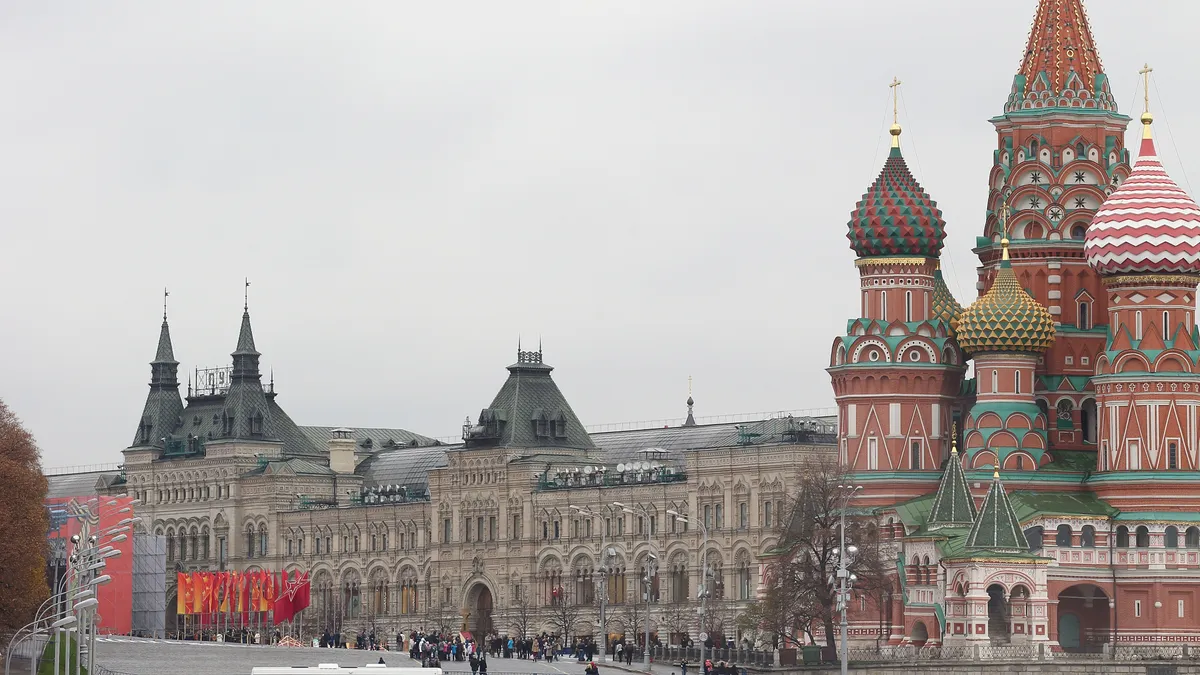Dive Brief:
- After Russia invaded Ukraine last month, the U.S. Department of Justice assembled a task force to seize the assets of Russian oligarchs, prompting many of the country’s wealthy citizens to sell their American real estate holdings, according to Fortune.
- Although the increased scrutiny may force Russians to sell individual apartments, the impact on the U.S. commercial real estate market should be fairly limited, industry watchers say.
- Russian outbound global real estate investment averaged just $330 million per year over the last five years, according to New York-based commercial real estate data firm Real Capital Analytics. "Russian ownership of commercial assets in the world’s largest property markets is sparse," wrote RCA’s Tom Leahy in the report released earlier this year.
Dive Insight:
Russians have been investing in American real estate for decades, according to NBC News. Before the global financial crisis, Russians bought many luxury apartments in cities like Miami and New York City.
After the Russian invasion of Crimea in 2014 and President Barack Obama’s sanctions against the country, Russian investment in U.S. real estate ground to a halt.
Ukrainian-born real estate associate with Compass, Victoria Shtainer, told NBC that she sold 30 to 40 Manhattan apartments to Russian buyers from 2005 to 2014. But the high purchase price of New York City apartments triggered red flags after sanctions.
These days, Russian investors have even less exposure to U.S. real estate. Jim Costello, senior vice president of Real Capital Analytics said there has been "no real capital flow out of Russia to U.S. CRE for some time now."
However, spillover effects of the war in Ukraine could affect international investment into the U.S., according to Costello. But for now, it’s too early to tell.
"This calamity in Ukraine is moving faster than our monthly information can keep up with it," he told Multifamily Dive.
Traditionally, American apartments have been seen as one of the safest real estate sector in times of turmoil. But Manus Clancy, senior managing director for New York City-based information and analytics provider Trepp, said it's too early to tell whether the Ukraine crisis will lead to more dollars invested into U.S. multifamily.
"People everywhere were piling into buying multifamily assets for the last 18 months driving cap rates to record lows," said Clancy. "So it's been a desirable place to put money for a long time."
Click here to sign up to receive multifamily and apartment news like this article in your inbox every weekday.











